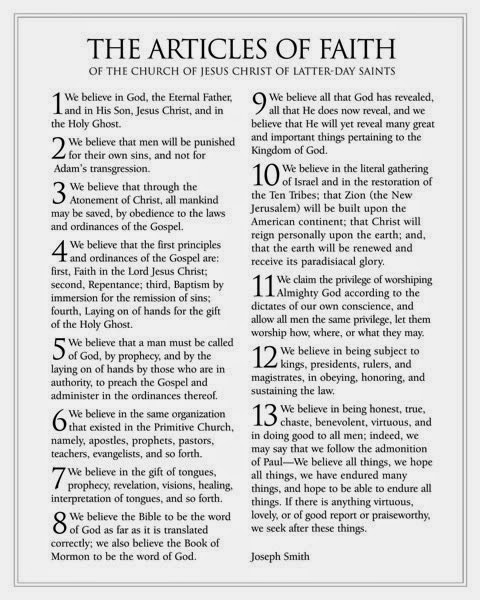As promised
(in Bad Religion Vs. Bad Science), I'm back again to this same old argument between creationists and evolutionists. Last time I wrote about how evolutionists cast themselves as the truly humble searchers for truth and creationists as arrogant deniers of the facts.
I pointed out that because true religion (from the Latin
re+ligare, or re-connect) and true science (from the Latin
scientia, or knowledge) are both seeking truth, they ought to be united.
As long as either side chooses to argue against a misunderstanding of the other side's beliefs, not even a common ground on which to continue the discussion will be found.
I've found a very interesting
article that discusses five areas of misunderstanding by creationists, pointing out that as long as creationists argue against a false understanding of a principle of evolution, they won't convince anyone.
Here are the five areas discussed in the article, ideas supposedly used by creationists to argue against evolution:
- Evolution has never been observed.
- Evolution violates the 2nd law of thermodynamics.
- There are no transitional fossils.
- The theory of evolution says that life originated, and evolution
proceeds, by random chance.
- Evolution is only a theory; it hasn't been proved.
I myself have heard all of these arguments --- but not recently.
In fact, when I was growing up, I had a Seminary teacher who seriously told us that dinosaur bones were put on Earth by God to test us:
If we believed they were evidence of the long haul of Creation, we had insufficient faith; if we believed in the Bible's account of the Creation, we would know that those fossils were not evidence of evolution.
But here's the thing: No religious believer whom I know personally is now making those arguments.
Whoops! I guess I'm just lucky in knowing only religious believers who are not the "creationists" against whom these evolutionists are arguing.
Because, unfortunately, some people living right now, in the 21st Century, are teaching this nonsense. For an overview of their ideas, complete with some hilarious pictures, check out
Conservapedia's page on dinosaurs.
Well, that aside, let's look at these
five areas of concern, from an online article by Mark Isaak, (C) 1995-1997 and updated in 2003:
1. Has evolution been observed? Yes, it has. Disease-causing microbes develop resistance to antibiotics, resulting in ever-more-deadly versions of those diseases (example:
multi-drug-resistant tuberculosis). And, yes, even this rate of
evolution does result in rapid speciation.
Evolution has been observed not only in the lab, not only with microbes, but in the field, with more complex organisms, as the result of unnatural selection, i.e., breeding by humans, when
silver foxes were domesticated and became more like dogs.
This does not mean that frogs will become cows, which Darwinian evolution does not predict, anyway. As Isaak writes, "In fact, if we ever observed a frog turn into a cow, it would be
very strong evidence
against evolution."
2. Does evolution violate the second law of thermodynamics? No, it does not. If you think it does, that's because you misunderstand that law. Creationists who do misunderstand this law, thinking it means that all order eventually becomes disorder as energy is lost from a system, forget that life on Earth is not a closed system. Energy from the sun is constantly being added to the system, so order can be maintained and even increased.
Besides, even in non-living objects on earth, order appears out of disorder. As Isaak notes, "Snowflakes, sand dunes, tornadoes, stalactites,
graded river beds, and lightning are just a few examples of order coming
from disorder in nature; none require an intelligent program to achieve that
order."
3. Are there transitional fossils? Yes, there are. Isaak writes, "Paleontology has
progressed a bit since
Origin of Species was published, uncovering
thousands of transitional fossils, by both the temporally restrictive and
the less restrictive definitions. The fossil record is still spotty and
always will be; erosion and the rarity of conditions favorable to
fossilization make that inevitable. Also, transitions may occur in a small
population, in a small area, and/or in a relatively short amount of time;
when any of these conditions hold, the chances of finding the transitional
fossils goes down."
Here's a Web page with more information about
transitional fossils. Read it! It's fascinating, listing many examples where transitional fossils exist, and many where there are huge gaps.
4. Does the theory of evolution say that life originated, and evolution proceeds, by random chance? No, it does not. While chance plays a large part in evolution, through mutations, natural selection sorts out the resulting mutations so that the organism with the qualities needed to survive does survive.
Even the origin of the very first life comes as atoms and molecules "arrange themselves" (in Isaak's words) "not purely randomly, but according to their chemical properties."
He adds, "In the case of carbon atoms especially, this
means complex molecules are sure to form spontaneously, and these complex
molecules can influence each other to create even more complex molecules.
Once a molecule forms that is approximately self-replicating, natural
selection will guide the formation of ever more efficient replicators."
Besides, Darwin's theory of evolution does not say anything about how the first life came about, only that once it was here, it proceeded through natural selection.
5. Is evolution "only a theory" that hasn't been proved? Of course not. This kind of statement reveals a misunderstanding of how the word "theory" is used in science. Quoting again from Isaak: "A theory, in the scientific sense, is 'a coherent group
of general propositions used as principles of explanation for a class of
phenomena' [Random House American College Dictionary]."
So when we talk about Darwin's "theory" of evolution, this is what we're talking about---not about ideas on the order of my own pet "theory" which states that men who smoke cigars are worse drivers than other men.
Darwin's theory only says that life evolved, through various mechanisms like mutations and natural selection, among others. There are a lot more hypotheses that contribute to our understanding of and increasing reliance of the correctness of this theory, but that's the basic theory.
Isaak writes, "Generally speaking, scientific
theories differ from scientific laws only in that laws can be expressed more
tersely. Being a theory implies self-consistency, agreement with
observations, and usefulness."
He concludes, "Creationism fails to be a theory mainly
because of the last point; it makes few or no specific claims about what we
would expect to find, so it can't be used for anything. When it does make
falsifiable predictions, they prove to be false."
This is where I would like to go next, when I have a chance to write about this again: Do creationists have a "theory" which can, like Darwin's theory of evolution, make specific, falsifiable claims or predictions that can be shown to be true?




















